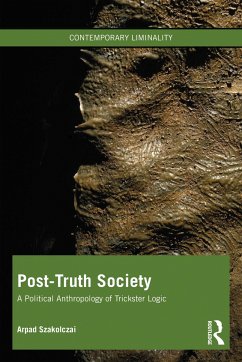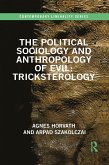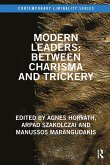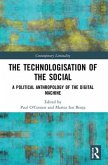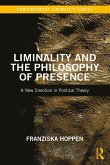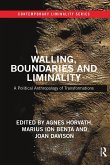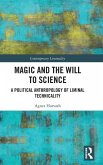It is widely asserted that we are now living in a post-truth society. What that means, this book argues, is that the contemporary global world is thoroughly infested not only with trickster figures but an entire and operational trickster logic; or, that we now live in a Trickster Land - an argument advanced by the claim that in modernity liminality has become permanent; or that modern life is patently absurd.
The first part of the book presents a series of 'guides' to this condition, in the form of key thinkers and writers who can help us understand and navigate our Trickster Land. Such guides include Hermann Broch, Lewis Hyde, Roberto Calasso, Michel Serres, Sándor Márai, Colin Thubron and Albert Camus. The second part goes on to discuss five main regions of Trickster Land: art, thought, the economy, politics and society. This last, central chapter of the book contrasts trickster logic with the basic, foundational logic of social life, presented as gift-giving by Marcel Mauss and as sociability by Georg Simmel, and which is expressed here, combining Heraclitus and Plato with the Gospel of John, by three basic terms of ancient Greek culture, as arkhé charis logos: meaningful social life originally and in its essence is animated by the power of kind benevolence. This volume will appeal to scholars of social theory, anthropology and sociology with interests in political thought and contemporary culture.
The first part of the book presents a series of 'guides' to this condition, in the form of key thinkers and writers who can help us understand and navigate our Trickster Land. Such guides include Hermann Broch, Lewis Hyde, Roberto Calasso, Michel Serres, Sándor Márai, Colin Thubron and Albert Camus. The second part goes on to discuss five main regions of Trickster Land: art, thought, the economy, politics and society. This last, central chapter of the book contrasts trickster logic with the basic, foundational logic of social life, presented as gift-giving by Marcel Mauss and as sociability by Georg Simmel, and which is expressed here, combining Heraclitus and Plato with the Gospel of John, by three basic terms of ancient Greek culture, as arkhé charis logos: meaningful social life originally and in its essence is animated by the power of kind benevolence. This volume will appeal to scholars of social theory, anthropology and sociology with interests in political thought and contemporary culture.
"The society of the trickster is a realm where we are permanently trying to pin the tail to the donkey of truth and where impartial, objective reality seems to be a distant memory. There is no better, or more fearless, guide to 'Absurdistan' than Arpad Szakolczai. A jaw-dropping book for our disturbed and disturbing times."
Chris Rojek, Professor of Sociology, City University London, UK
"At the moment we try to grasp modernity, or to relabel it as post-modernity, it eludes us. What appears as the end of history becomes obsolete as soon as it is identified. What appears as the final disenchantment becomes a new mystery. Every 'critique' ends in irrelevance. Arpad Szakolczai has provided a novel and deep reflection on this situation, in terms of trickster logic, the continuing illusory promise to dispel mystery which creates a substitute mystery."
Stephen Turner, Distinguished University Professor, University of South Florida, USA
Chris Rojek, Professor of Sociology, City University London, UK
"At the moment we try to grasp modernity, or to relabel it as post-modernity, it eludes us. What appears as the end of history becomes obsolete as soon as it is identified. What appears as the final disenchantment becomes a new mystery. Every 'critique' ends in irrelevance. Arpad Szakolczai has provided a novel and deep reflection on this situation, in terms of trickster logic, the continuing illusory promise to dispel mystery which creates a substitute mystery."
Stephen Turner, Distinguished University Professor, University of South Florida, USA

